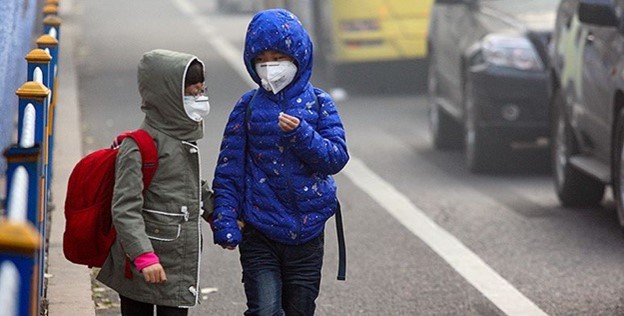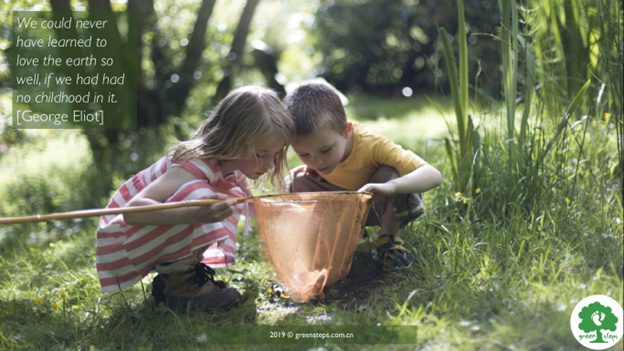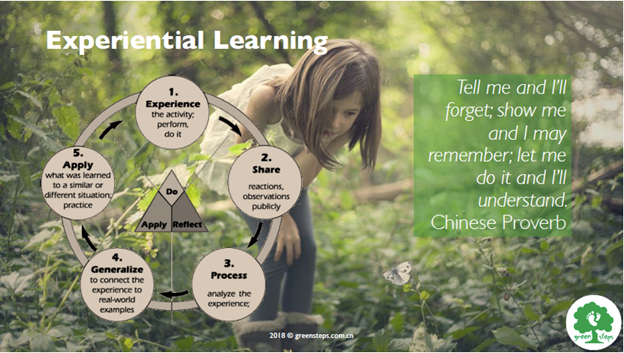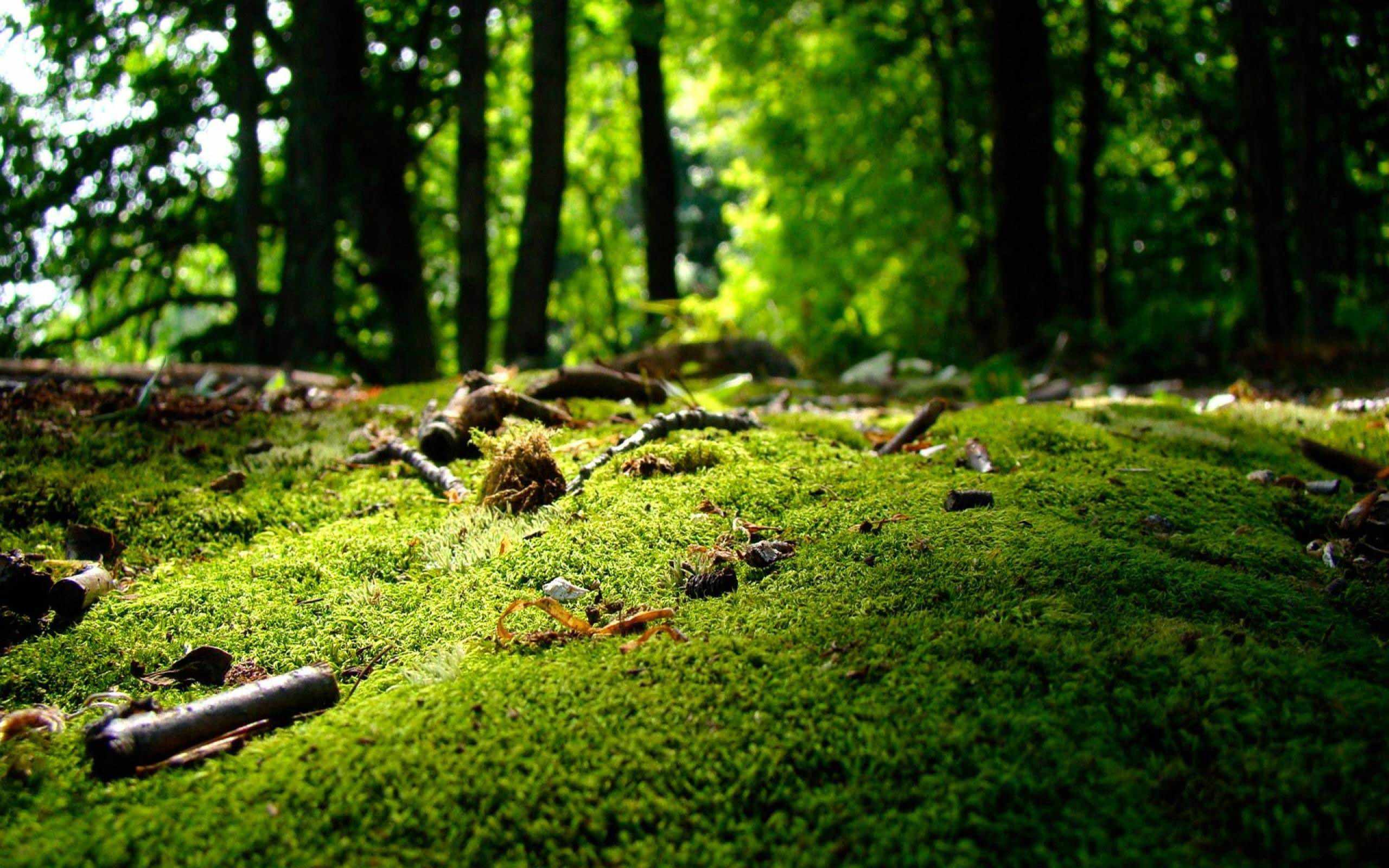Author:
Green Steps
Short summary:
Richard Louv coined in 2005 the expression "Natural Deficit Disorder" to describe how the lack of nature exposure can affect us all. Green Steps turns the natural environment into a playground and learning space. Our mission is to heal ourselves and Nature.


Chai Jing's 2013 documentary Under the Dome kicked it all off in China: the obsession with air pollution – the visible testimony to how we treat our environment. Beijing’s air pollution index went viral in January 2013 topping PM 2.5 900µg and Shanghai’s reached in December 600µg. One was able to slice the air like fairy floss, so thick it was. Many schools have since then implemented strict regulations based on a national Air Quality Index (AQI) e.g. no outdoor activities if AQI higher than 120. Understandably so. One is concerned with the health of those who have been put in one’s care.
WHO writes in the first paragraph of its fact sheet on air quality that air pollution is a major environmental risk to health. By reducing air pollution levels, countries can reduce the burden of disease from stroke, heart disease, lung cancer, and both chronic and acute respiratory diseases, including asthma. Our obsessive focus on air quality generates however a certain blindness to other health risks and makes us overlook soil and water pollution. Moreover, it conspires with our increasing addiction to screens which keep us indoors, sealed off from the “harmful” outdoors.
These underestimated health risks are summarized under the umbrella term nature deficit disorder, which was coined in 2005 by author Richard Louv in his book Last Child in the Woods. Louv argued that the alienation from the natural world leads to a plethora of problems. So while parents might keep their children safe from toxic emissions they inflict upon them other ailments. The Children & Nature Network, a non-profit which is dedicated to reconnect children with the natural world, lists in its research section a number of scientific studies which confirm that limited exposure to nature leads to an increased probability of
- Attention disorder
- Hyperactivity disorder
- Obesity
- Depression
- Slowed cognitive development
- Reduced creativity
It seems therefore that parents face a tough choice: either protect their children from the toxic emissions of our industrial and urban environments or expose them to the dulling and debilitating conditions of digital indoor life. Richard Louv argues that the effects of the nature deficit disorder on our children will be an even bigger problem in the future: An increasing pace in the last three decades, approximately, of a rapid disengagement between children and direct experiences in nature…has profound implications, not only for the health of future generations but for the health of the Earth itself.
The solution is therefore surprisingly simple and leaves us no choice: In order to save the planet, we need to venture outdoors as much as possible to seek the direct encounter with nature. If we want to save our children, we need to connect them to nature; and the more we connect to nature the more likely it is that we clean up the mess we have created so far. That’s most likely what Victorian poet Mary Anne Evans aka George Eliot anticipated when she wrote in the 19th century: We could never have learned to love the earth so well, if we had had no childhood in it.

At Green Steps we have made it our mission to connect children with nature and develop environmental knowledge. We believe that learning must be fun and as educators, we nurture the curiosity to explore the outdoors. We believe a change in our behavior towards the planet starts by understanding the process that maintains life on it. This change starts when we become aware and responsible of our intimate connection to nature. We teach hands-on natural sciences using the outdoors as a playground and laboratory.
Green Steps has developed a Montessori inspired leaning method: the triple focus curriculum, which builds simultaneously intrapersonal, interpersonal and ecological intelligence. Dr. Maria Montessori revolutionized the Italian education system a century ago with her pedagogical anthropology, when she introduced two central concepts into mainstream education: practical life activities and sensorial learning, i.e. daily chores and deliberate focus on our distinct senses to build interest, maintain attention and achieve goals. A Chinese proverb pins down this learning approach: Tell me and I’ll forget; show me and I may remember; let me do it and I’ll understand.

Our modern, digitally injected lives, have made it difficult for children to be interested in literally anything. Attention spans are dropping vertically. As educators and parents we face dopamine and screen addicted child-brains and compete with the intense stimulation of videogames, TV shows and smart phones. Statistics about daily time spent on screens vary between four to ten hours for average adults. The Atlantic therefore writes: when it comes to children’s development, parents should worry less about kids’ screen time—and more about their own.
A century ago, Dr. Montessori did not have to compete with electronic devices, but she introduced yet another concept, which is in particular powerful in early childhood education: modelling. It is the behavior of the caregiver which is modelled by the child in particular during the habit forming early childhood years. As parents and educators we need to understand that with each hour our children see us hooked to a screen, we model a behavior to them which they are most likely to follow. Another Chinese proverb entails this simple but profound truth: By three methods we may learn: First, by reflection, which is noblest; Second, by imitation, which is easiest; and third by experience, which is the bitterest.

Green Steps offers an age appropriate curriculum which combines practical life lessons with sensorial learning. One such best practice is Plastic Pirates, a half day event which we implement in different locations in greater Shanghai – in forests, wetlands and along the coastline. Marine biologist Joan Elizalde teaches children through their own senses and in a playful way about the impact of plastic in our environment, how it affects our and the life of future generations. While they are exposed to one of the most urgent environmental issues of the 21st century, they simultaneously gain a deep understanding of different ecosystems and their underlying processes.
Being well aware that it takes many more people to change our relationship with the environment, Green Steps has also started to offer monthly weekend courses empowering parents to guide children into a meaningful nature experience and design Montessori inspired activities which make children more environmentally aware. Reviewed activities are integrated with the consent of the activity designer to our growing environmental learning library which will soon be available on our wechat mini-app.
Meanwhile you might want to follow Wilder Child, a nature-connected homeschooling group on facebook, which provides a lot of inspiration and support to get back into the bosom of Mother Nature. Our join Green Steps group on goodreads.com, where we collect reading recommendations on the subjects of parenting, learning and the environment.





